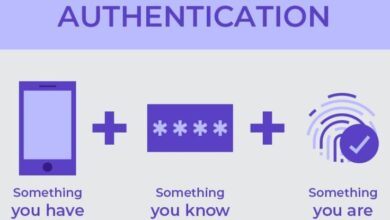Five Guidelines for Successful Online Reputation Management

For online reputation management, it’s essential to be proactive rather than reactive. This means being aware of the latest trends and monitoring your online reputation. It also means being a thought leader instilling trust in customers. Finally, 77% of consumers would leave a review if asked.
Being Proactive Rather Than Reactive
In online reputation management, a proactive strategy aims to turn adverse events into positive ones. For instance, some industry experts like Birdeye can discuss how you can leverage internet reputation management to your company’s advantage. Responding quickly if a negative review is written about a business is essential. This will prevent negative publicity from spreading and increase morale.
A proactive company will invest in data analytics to predict problems and crises. They will monitor pricing and review pricing and website usability. They will train their team to recognize issues early and escalate them to management. They will also respond to negative comments.
An effective reputation management strategy will also help you build a positive brand image. Creating good content and sharing it on social media sites, regularly updating a blog, and asking satisfied customers to post online reviews are all ways to ensure a positive brand image.
Being a Thought Leader Instills Trust in Customers.
As a business owner, you must create content to educate your customers and build credibility and rapport with them. You can turn your potential customers or clients into paying customers by providing valuable content. Become a thought leader in your industry by publishing free articles and taking a position on topics that affect your customers and your industry. It’s not easy, and you might need to spend some time creating content before you can gain a substantial audience.
Being a thought leader can also be a very effective marketing strategy. It can demonstrate how an expert can impact a specific industry, and it can open up new opportunities for business growth. For example, being a thought leader can boost your company’s growth if you own a startup.
Monitoring Your Online Reputation
A key component of online reputation management is monitoring the web. It is essential to monitor search engine results, respond to comments and build positive content. It is also important to monitor online reviews, which significantly impact search engine rankings. Google takes these reviews into account when filtering search results. If a review is poor, it will harm your web page.
You can monitor your online reputation through social media, which is an excellent source of customer feedback. Then, you can post a response to those reviews.
Influencer Marketing
Influencer marketing is a great way to promote a product or service to a target audience. However, it’s essential to know influencer marketing rules before engaging in this practice. These rules have been set by the Federal Trade Commission (FTC), and you’ll need to comply with them to ensure your brand’s reputation isn’t damaged. One of the most important rules is disclosure. Influencers must make it clear which posts are sponsored or not. This is important because influencers often mask sponsored posts.
Secondly, be clear about how much money you have to spend. Influencers will often ask for a fee upfront or on an engagement basis, so it’s essential to outline the budget and deadlines before you start the process. Make sure to keep the scope of your campaign small so that you won’t overwhelm influencers.
Managing Negative Reviews
When it comes to online reputation management, you can easily manage negative reviews by monitoring them and responding promptly. While you can’t avoid all negative thoughts, a proactive approach can significantly improve the impact of negative reviews on your brand. This strategy involves monitoring brand impressions, regulating feedback, and ensuring that your brand is always at the forefront of customer responses.
While negative reviews can be discouraging for your brand, a positive approach to review management can help your business build trust and be better prepared to handle PR disasters. For example, one study found that 70% of consumers said that reading positive online reviews increased their confidence in local businesses. And if a company consistently responds to good reviews, its customers will feel more confident about its business decisions.




